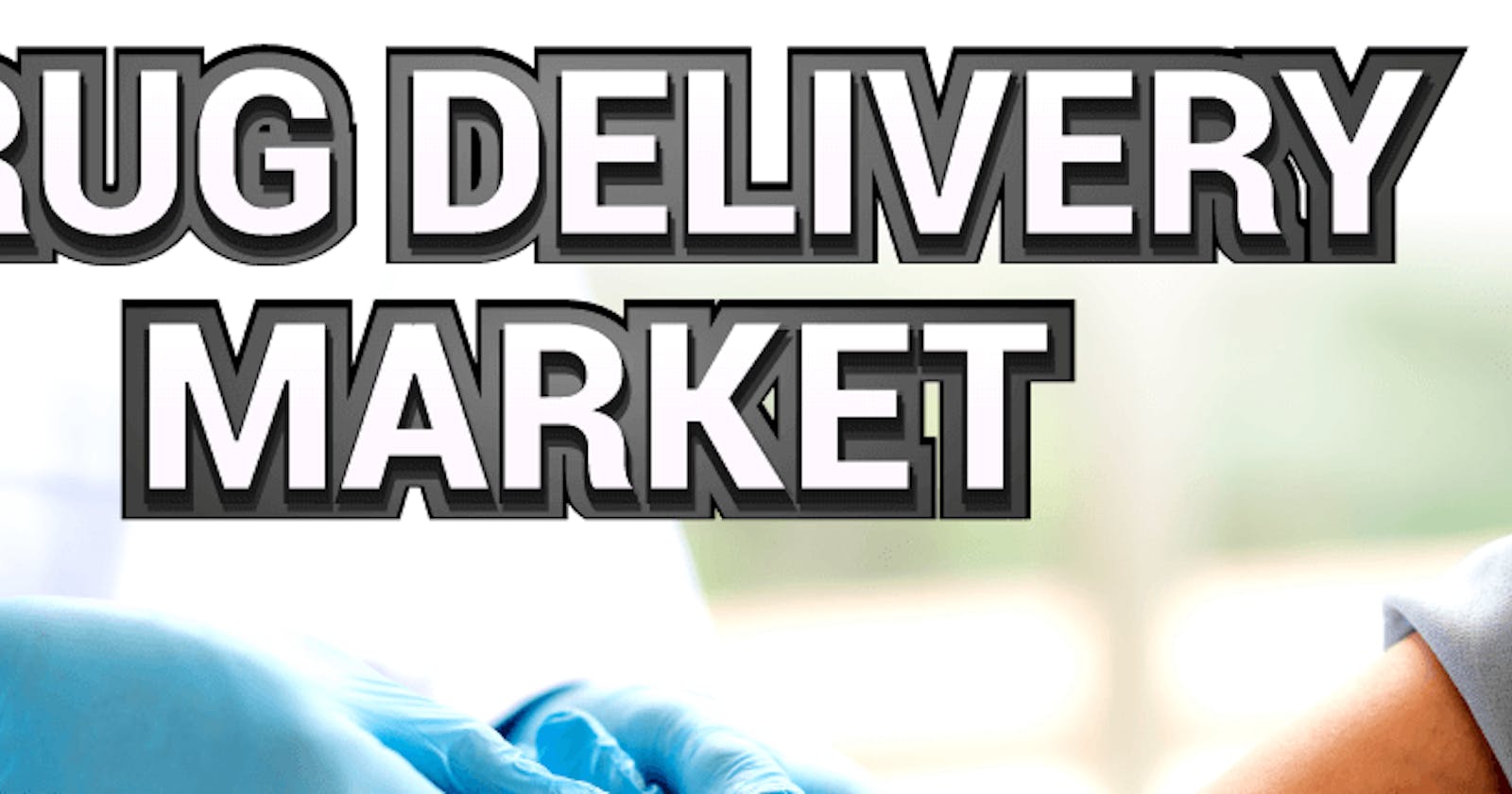Drug Delivery Market: Enhancing Patient Care with Innovative Delivery Systems
The drug delivery market is a rapidly growing segment of the healthcare industry that is focused on developing and marketing innovative delivery systems for drugs and biologics. The market includes a wide range of products and services, including oral drug delivery systems, injectable drug delivery systems, transdermal drug delivery systems, and pulmonary drug delivery systems.
According to Fortune Business Insights, "The global drug delivery market size stood at USD 1,021.29 billion in 2018 and is projected to reach USD 1,801.54 billion by 2026, exhibiting a CAGR of 7.4% during the forecast period." Read More: https://www.fortunebusinessinsights.com/drug-delivery-market-102416
The demand for drug delivery systems is driven by a combination of factors, including the growing ageing population, the increasing prevalence of chronic diseases, and the need for more targeted and personalized treatment options.
The market is highly competitive, with several key players dominating the industry. Oral drug delivery systems, such as tablets and capsules, are among the largest and most rapidly growing segments of the drug delivery market. These systems are used to treat a wide range of conditions, including diabetes, cancer, and cardiovascular diseases.
The demand for innovative drug delivery systems is expected to increase in the coming years, driven by the need for more effective and targeted treatment options. The availability of advanced drug delivery systems, such as nanotechnology-based drug delivery systems and implantable drug delivery systems, is also expected to boost the market growth.
North America and Europe are expected to be the largest markets for drug delivery systems, owing to the presence of key market players and the high prevalence of chronic diseases in these regions. The Asia-Pacific region is also expected to witness significant growth, owing to the increasing demand for personalized medicine and targeted drug delivery systems in the region.
Despite the growing demand for drug delivery systems, the market faces several challenges, including the risk of adverse effects and the need for extensive clinical trials to demonstrate the safety and efficacy of new delivery systems. However, the increasing focus on patient-centric healthcare and the development of new and innovative delivery systems is expected to drive the growth of the market in the coming years.
The drug delivery market is characterized by constant innovation and the development of new technologies that enhance patient care and improve treatment outcomes. For instance, the development of targeted drug delivery systems that enable precise drug delivery to specific cells or tissues has revolutionized cancer treatment.
Moreover, the increasing use of digital technologies and connected drug delivery systems is expected to transform the drug delivery market. These technologies enable real-time monitoring of drug delivery, as well as the collection of patient data that can be used to improve treatment outcomes and patient care.
The COVID-19 pandemic has also had a significant impact on the drug delivery market, with an increased focus on the development of new drug delivery systems for vaccines and treatments. For instance, the development of mRNA-based COVID-19 vaccines has highlighted the potential of nucleic acid-based drug delivery systems.
However, the drug delivery market also faces several challenges, including regulatory hurdles and the high cost of developing and manufacturing new drug delivery systems. Moreover, the need for extensive clinical trials and regulatory approvals can significantly delay the commercialization of new drug delivery systems.
Despite these challenges, the drug delivery market is expected to witness significant growth in the coming years, driven by the increasing demand for personalized medicine and targeted drug delivery systems. The availability of advanced drug delivery systems that enable precise drug delivery and improve treatment outcomes is expected to drive the adoption of drug delivery systems, thereby boosting the market growth.
